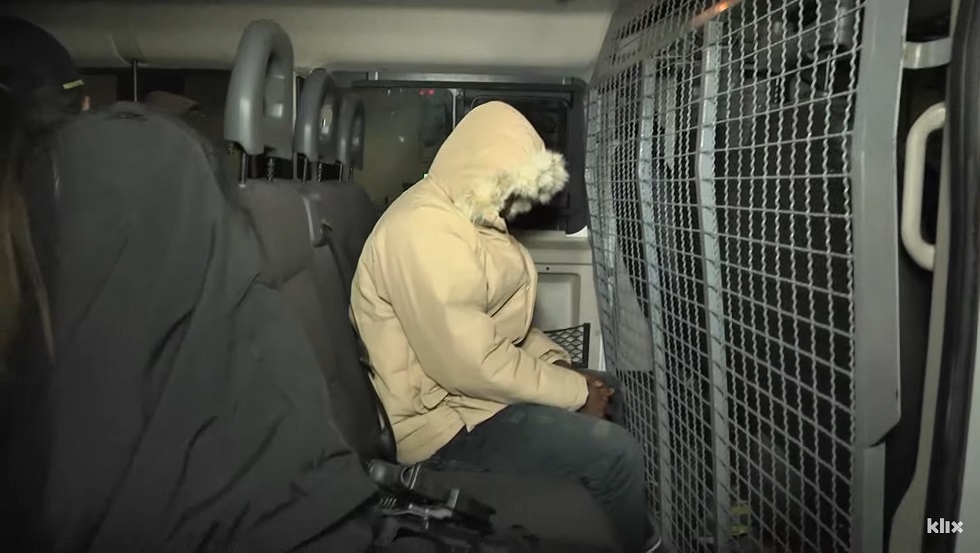Turkish Smuggler Crashes Migrant Van into Croatia Police Vehicle
Police officers from the Zagreb Police Department are conducting a criminal investigation involving a 34-year-old Turkish national, who attempted to smuggle 15 migrants, after he disobeyed police orders, hit a police vehicle with his van and attempted to flee.
The suspect has been detained on charges of committing the criminal offenses of "Illegal entry, movement and stay in the Republic of Croatia, another EU Member State or signatories to the Schengen Agreement", "Coercion against an official" and "Damage to someone else's property," according to Laura Vuckovic/Zagreb Info on December 28, 2019.
On Tuesday, December 24, 2019 at 12:45am, police officers stopped an Iveco Daily van with German license plates, which was driven by a 34-year-old Turkish national, at the Sveta Helena rest stop on the A4 Zagreb – Goričan motorway. Upon inspection, the officers discovered 15 asylum seekers in the cargo area of the van.
Turkish National Loaded Van in Zagreb
A criminal investigation has confirmed that the suspect, a Turkish national, placed the 15 asylum seekers in the cargo area of a van on December 24, at an undetermined location in Zagreb, with the intention of acquiring undue financial gain. While driving on the A4 Zagreb - Goričan motorway, he was spotted and stopped by police officers at a gas station, and the police officer identified himself to the driver with a badge and ID.
Although the police officer was standing next to the driver's door, the suspect disobeyed his order to turn off and exit the vehicle. Then, he attempted to flee by driving away and struck the front door of the police vehicle with his van. After about 15 meters, police officers prevented him from going any further and escaping.
After the initial criminal investigation was completed, the suspect was handed over to the detention supervisor, and a criminal complaint was filed with the State Attorney's Office on suspicion of committing the above-mentioned criminal offenses.
Almost 1000 Migrant Smugglers Arrested in Croatia
As of December 27, 2019; 976 migrant smugglers have been arrested in Croatia and charged with 904 crimes. As of the same date; 1,661 people have also applied for international protection in Croatia. In more than 70 percent of those cases, the procedure for granting international protection has been suspended because the applicants have arbitrarily left the official asylum seekers' shelter, which suggests a systematic abuse of the Procedure for International Protection.
In this scenario, asylum seekers, after being discovered while attempting cross the state border illegally into Croatia, most often within Lika-Senj Police District, express a false intention to seek international protection in Croatia after they have been detained. Then they use smuggling networks to continue their journey to their destination countries (Austria, Germany, Italy).
According to Zagreb Police, these scenarios are referred to as “secondary migrations” because they are comprised of exclusively economic migrants. These migrants do not appear to show any evidence of persecution in their country of origin, nor in the countries they are attempting to enter Croatia from (Bosnia, Serbia).
TCN reported another crash earlier this year which involved a Serbian national driving a van filled with 33 migrants, who crashed into a roadblock while attempting to flee police.
Follow our Politics page for coverage on the migrant crisis in Croatia.
Croatian Politics 2019: A Year in Review
What follows is a review of events in Croatian politics in 2019, as reported by TCN. If you would like to refresh your memory about the events which has led us here, read the reviews for the three previous years (2016, 2017, 2018).
The year started with a high-profile failure by the government. Months after it was announced that Croatia would buy used Israeli F-16 fighter planes, the US government vetoed the sale and the whole project fell through. Despite earlier warnings from experts that the deal was in question, ministers continued to claim that everything was alight. However, after a meeting between high-ranking officials from the United States and Israel, the truth was revealed. Ministers lost their nerves and the government launched an immediate investigation, which expectedly ended without any real results, and also announced that it would re-start the process. To show its level of seriousness, it even established a commission! Twelve months later, the process of deciding which aircraft to buy still hasn't move any further on and is not expected to end for at least another year.
The migrant crisis continued to be in the news this year. The inflow of migrants over the borders with Bosnia and Herzegovina and Serbia increased somewhat, together with media coverage about alleged brutality of Croatian police and illegal pushbacks of migrants to Bosnia. The authorities were quick to deny everything, but the sheer number of documented cases makes it apparent that at least some of the allegations are founded.
Efforts to limit media freedoms continued this year and some reporters were even briefly arrested. Journalists, NGOs and international organisations stood up to these attempts, but the final score is still unknown.
Repression continued in other ways as well, with courts ruling that peaceful protesters should go to prison, Croatia's human rights situation being criticised from abroad, ethnically-motivated assaults (several of them) taking place, ombudswomen’s warnings not being heard, journalists receiving instructions from the president on what to do, and diplomats spreading hate...
Historical revisionism was in full force once again this year. As a result, representatives of Jews, Serbs and anti-fascist organisations once again boycotted the government’s annual commemoration at the site of the Jasenovac concentration camp.
European elections were held in May (with even Pamela Anderson giving recommendations to Croatian voters). While the ruling HDZ party had high hopes earlier in the year (and was supported by German Chancellor Angela Merkel, who attended one of its rather controversial rallies in Zagreb), the actual results were much tighter and were interpreted by everyone as a success for the opposition (particularly SDP) and a disappointment for the government.
June brought us a few days of excitement when it seemed possible that prime minister Plenković might just succeed in his life-long dream of getting a top EU job. Despite denying he ever wanted such a thing, he was rumoured to be trying to become president of the European Commission (or president of the European Council, or perhaps something else). In the end, he had to return to Croatia empty handed, again denying his alleged attempts.
Unlike Plenković, foreign minister Marija Pejčinović-Burić was more successful in the area of career development. In June, she was elected secretary-general of the Council of Europe. She promptly resigned her post in Croatia and has not been heard about since. Another happy politician is Dubravka Šuica, who has been appointed Croatia’s commissioner in the European Commission.
Mostly good economic news continued. Public debt is at its lowest level in decades, the European Commission concluded that Croatia no longer suffered from excessive economic imbalances, and GDP growth is holding up.
One of the companies which was in the public focus this year was Croatia Airlines, Croatia’s national flag carrier. Its business results were dismal and the search for possible strategic partners was on, but without any real results. The government eventually decided to cover some of the debts, but as the year comes to and end, there is no long-term solution in sight. In the meantime, Zagreb Airport continues to lose airlines using its services.
The construction of an LNG terminal on the island of Krk has apparently started out with strong support from the US government, after many years of delays and announcements. The project is funded from the state budget, since there was no interest among anyone to actually use the terminal. The government claims that there will be interest once the terminal is built, but it would not be the first major government-funded project in Croatia’s history to fail to deliver on its promises.
The construction of Pelješac bridge continues to go at an even faster pace than expected (despite occasional Bosnian protests), mostly thanks to the efforts by the Chinese construction company which won the tender, which also brought about a marked improvement in the relations between Croatia and China. Unfortunately, the construction of the access roads leading up to the bridge has not progressed nearly as fast, with tenders being decided just several months ago. It is quite possible that, when the bridge is built, it will be unusable for a while because there will be no roads leading to it.
Emigration continues amid Croatia's demographic crisis, although somewhat slower than in previous years, probably as a result of the fact that most of those who could have left have already done so. The authorities talk about demographic revival, but nothing much has happened so far.
Political scandals were as numerous as ever. The regional development minister had an accident while driving without a driving license, the agriculture minister forgot to list all his assets on an official statement, the administration minister had his own scandals which were too numerous even to count, and the state assets minister had problems of his own. The Prime minister strongly supported his ministers before some of them resigned, and then he changed his mind and dismissed the rest of them.
The ruling coalition remained stable this year, despite occasional rumours of impending collapse. Ultimatums were rejected, resignations demanded, talks announced, decisions to stay in coalition made, threats given... Just the usual stuff.
As expected, the border dispute between Croatia and Slovenia has not been resolved this year. Slovenia was disappointed with the EU’s decision not to get involved in a dispute between its two members. The chances that this issue will feature in our review for 2020 are quite high.
In October, the European Commission announced that Croatia has fulfilled all the technical conditions to join the Schengen area. However, the final decision will require the unanimous support of all EU member states, and Slovenia does not seem ready to give its approval until the border dispute with Croatia is resolved.
Another major project is the introduction of euro in Croatia. After a lot of talk, the government has finally sent an official request. The process will certainly take years and opinion is divided as to whether it is a good idea or not.
One of the highlights were the trade union's activities. Earlier in the year, the unions managed to collect enough signatures for a referendum against the government’s pension reform and an increase in the retirement age. The government capitulated and revoked already approved laws (although it previously warned that such a decision would be a disaster).
The other major trade union success was the primary and secondary school strike later in the year. After almost two months, the government capitulated and gave the unions more or less everything they had asked for.
One of the highlights of the next six months will be Croatia’s EU presidency. The government is promoting it as a great success, although all EU member states sooner or later get their chance to hold the rotating presidency. While Croatia's plans are ambitious, their delivery will probably be more modest.
The major event at the end of the year was the first round of Croatia's presidential elections.
While the post is largely ceremonial, elections are held every five years and still manage to occupy public attention for months. Three major candidates launched their bids: incumbent president Kolinda Grabar-Kitarović (officially an independent candidate who in reality is HDZ), former SDP prime minister Zoran Milanović, and singer Miroslav Škoro, who presented himself as a candidate of change, despite having been an MP, a diplomat and a former HDZ member.
The first round was held on December 22. Zoran Milanović won with 29.6% of the vote, followed by Kolinda Grabar-Kitarović with 26.7%. Škoro was third with 24.5%. Milanović and Grabar-Kitarović will take part in the run-off on January 5.
NGO Accuses Croatia of Escalation of Police Violence Against Migrants
ZAGREB, December 18, 2019 - The Centre for Peace Studies said on Wednesday that police violence against migrants passing through Croatia on their way towards other EU member-states had escalated this year, and accused the authorities of doing nothing to prosecute unlawful actions by police.
In this context the NGO pointed out the latest testimony of a police officer who accused the police leadership and some officers of resorting to illegal methods so as to avoid the registration of evidence of unlawful push-backs of migrants. He also cited cases of arbitrary detention in garages, separation of family members and unlawful use of dogs to force migrants back to Bosnia and Herzegovina.
The NGO says in its press release issued on 18 December, which is observed as International Day of Migrants, that their rights are being violated along the border on a daily basis as well as in other parts of Croatia's territory.
Beatings, the use of electroshocks, branding, and shooting at migrants are just some of the methods which the police use to deter migrants, according to this nongovernmental association.
The Centre particularly criticised the Croatian authorities for being persistent in non-prosecuting reported violence.
It says that some other associations and international institutions as well as local and foreign media have warned about such conduct of police officers when fending off border crossers.
In this context it mentioned Border Violence Monitoring Network, Are You Syrious, Amnesty International, Human Rights Watch and the UN speical rapporteur for human rights of migrants, the Council of Europe, the Croatian human rights ombudswoman and some members of the European Parliament.
More news about the migrant crisis can be found in the Politics section.
Get-Together, Lunch Organised for Syrian Asylees in Karlovac
ZAGREB, December 15, 2019 - The Islamic Community in Karlovac on Saturday organised a get-together and lunch for ten Syrian asylum-seeking families, and the event was also attended by representatives of organisations that help the asylum-seekers in the process of social integration, notably the International Organisation for Migrations and the Jesuit Refugee Service (JRS).
Janko Gredelj of the JRS said that the path of integration was not easy. Asylum-seekers have to continue learning the Croatian language intensively, a process that began at the reception centre for asylum-seekers in Kutina, so that they can prepare for employment and become independent and equal citizens as soon as possible because if they do not integrate over a period of two years, they lose the right to state aid.
"The demand for workers in Croatia is great, 20 asylum-seekers are currently registered with the employment office in Karlovac. The local community has accepted them well, and we have been given an office by the city authorities where our colleague Said al Ahmed, who has been in Croatia for nine years, will assist them on a daily basis so there is no reason for fear," Gredelj said.
Mirjana Pogačić of the Karlovac Social Welfare Centre said they wished the asylees a life of peace, health, joy and love in Karlovac, recalling that Croatians, too, had experienced war and knew how to work with refugees and, generally, with people in need.
"You should know that we share the experience of war with you, that we understand you and that we will do our best to help you overcome all problems you may encounter," Pogačić told the Syrian families.
Renata Kučan of the Karlovac city authorities welcomed the asylees, particularly their children who have already been enrolled in local primary schools.
Teacher Sanja Ravbar said the children have been very well accepted because they are hard-working, motivated and very good at mathematics. She said that the language barrier still existed but that she believed that in time everything would be great.
It was also said that none of the asylum-seekers in Karlovac had complained about the smallest sign of xenophobia and that apart from welcoming words, they were also given concrete assistance, such as free taekwondo lessons for the Syrian children.
The IOM organises the relocation of people in need across the world, and in this specific case, the refugees were relocated from refugee camps in Turkey, said Igor Aničić.
Previous experience has shown that a large number of asylees have left Croatia for other EU countries.
There is nothing bad about it, it is a process in which they are granted practically all civil rights as well as Croatian travel documents, which are also EU travel documents, he said.
Countries are given quotas for refugee integration, during which asylum-seekers obtain all social and other rights, which is followed by the search for employment in line with one's own skills and abilities, said Aničić.
The chief imam in Karlovac, Admir Muhić, said the Syrian asylees were all followers of Sunni Islam just like Croatian Muslims.
He said that the Syrian children would start attending religious instruction, primarily as a way of learning the language as well as to get spiritual and other help.
Bermin Meškić of the Karlovac Islamic community said that Croatia set a positive example with regard to the integration of Muslims, that the Islamic community in Croatia was an integral part of the Croatian society and that Muslims in Croatia wanted the new fellow citizens to integrate well.
"Lately we have also been witnessing negative stories, disturbing news not far from us, on the border with Bosnia and Herzegovina, and today's event is an example of solidarity, humanity and warmth. I wish to believe that we in Croatia will show that face most frequently, I know that that will be so as long as there is a need for Croatia's assistance," said Meškić.
More news about the migrant crisis can be found in the Politics section.
Nigerian Government Official: Students Will Return Home from Croatia
Contrary to recent reports that the Bosnian government would be sending two Nigerian students, Abia Uchenna Alexandro and Eboh Kenneth Chinedu, back to their homeland directly from Bosnia, a senior Nigerian government official has confirmed in a press release today that the students will fly back to Nigeria from Zagreb, Croatia instead.
Accusations Against Croatian Police
According to the students’ uncorroborated account, they were approached by Croatian police in Zagreb on the evening of November 17, not allowed to return to their hostel to retrieve their passports and were taken instead to the nearby police station. From there, they were put inro a van with illegal migrants and sent to the Bosnian border where they were forced at gunpoint to enter Bosnia. The Croatian police and manager of the HI Youth Hostel, where the students stayed, have disputed the students’ version of events.
Fear of Returning to Croatia
According to N1 Bosnia on December 11, 2019 – Dragan Mektić, Bosnian Minister of Security explained that the students would be returned to Nigeria directly from Bosnia via the AVR voluntary repatriation program. He noted that the students had expressed fear of returning to Croatia. The students also insisted, in interviews with Žurnal and The Guardian, that they would not return to Croatia without UN escorts. However, a top Nigerian government official has confirmed today that the students will, in fact, be returning to Nigeria from Croatia.
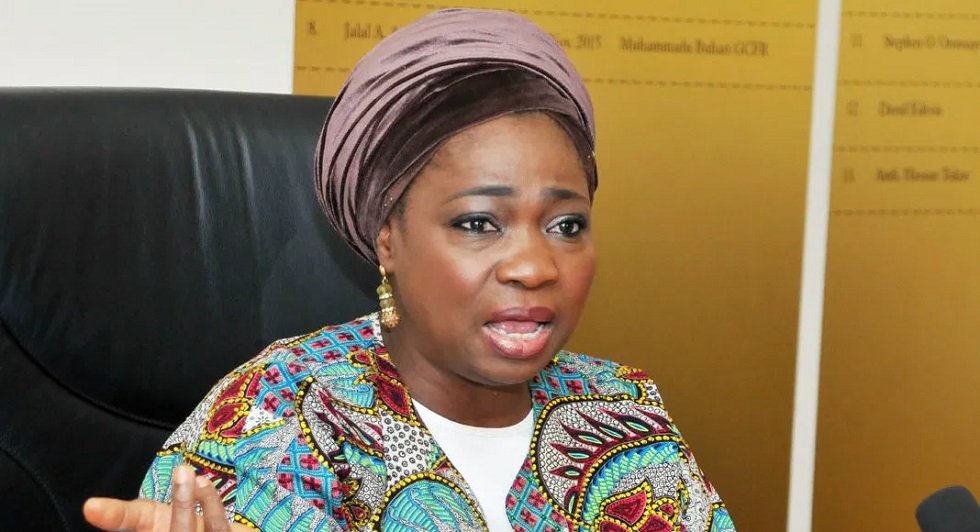
Chairman/CEO of Nigerians in Diaspora Commission Statement
The statement, which was released two hours ago by Abdur-Rahman Balogun, Head Media & Public/Relations, on behalf of the Hon. Abike Dabiri-Erewa, Chairman/CEO of Nigerians in Diaspora Commission (NIDCOM), addressed a few of the details surrounding the students’ trip to Croatia. She noted that the Nigerian Mission in Hungary has been involved in securing their return to Nigeria. Recall that the Chairman had disputed portions of the students' account as reported by The Guardian after that article appeared in The Cable, a Nigerian portal.
“The Minister of Foreign Affairs is on this matter. It’s not as straightforward as you have reported, but the Minister has personally intervened. We should give an update as the intervention continues,” she revealed in a tweet on Saturday, December 7.
Didn’t Inform Nigerian Table Tennis Federation
According to today's statement, five students went to the Fifth World InterUniversities Championships in Pula to compete in table tennis. She also pointed out that they attended the event without the knowledge of the Nigerian Table Tennis Federation. She confirmed Croatian police reports that two had returned to Nigeria after the competition and that another student had applied for asylum in Croatia.
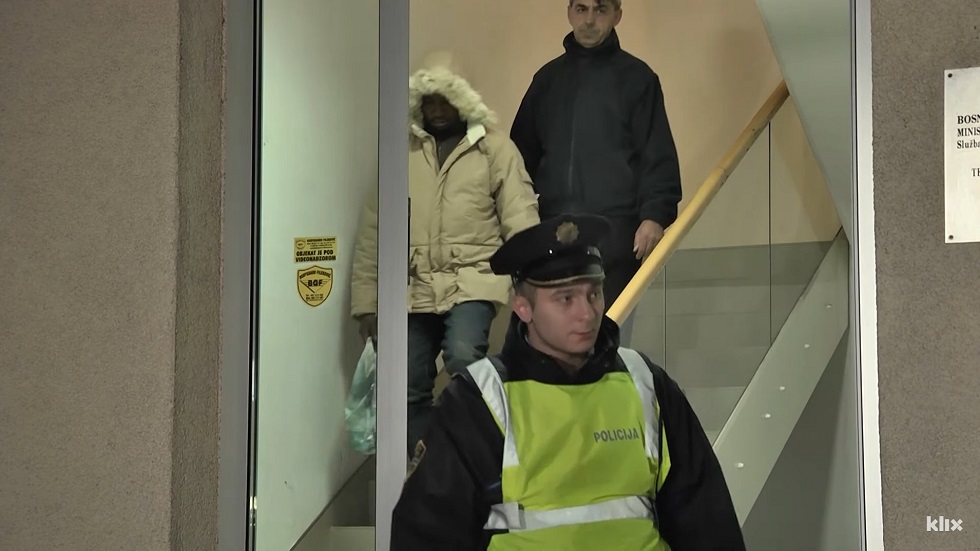
Must use Return Tickets Not Seek Asylum
She emphasized that, as condition of their release, the two students, who are currently being held in Bosnia, must use their return flight tickets from Zagreb and cannot seek asylum in Croatia. While she acknowledged that the Croatian police had denied the students’ allegations, she also noted that Mr. Geoffrey Onyeama, the Hon. Minister of Foreign Affairs of Nigeria, has demanded a full investigation into the incident. She noted that the students are expected to arrive in Croatia anytime from today December 13, 2019.
The statement, which is printed in full below, can be found here.
The Chairman/CEO, Nigerians in Diaspora Commission, (NIDCOM) Hon. Abike Dabiri-Erewa has assured that the two Nigerians in Bosnia Camps are hale and hearty and are expected to return to Croatia anytime from today Friday Dec. 13, 2019 preparatory to come back to Nigeria.
This was sequel to series of diplomatic interventions from the Nigerian Mission in Hungary and Mr. Geoffrey Onyema, Hon. Minister of Foreign Affairs, who directed for full investigations to be carried out.
It will be recalled that two students of the Federal University of Technology, Owerri (FUTO), Abia Alexandro Uchenna and Eboh Kenneth Chinedu, who attended an international table tennis competition in Croatia, ended up in a Bosnian refugee camp.
She said arrangements have been concluded to send the two Nigerians back to Croatia anytime from today, Friday December 13, 2019, adding that the Nigerian Mission in Hungary has taken steps to ensure that the matter is resolved, and the welfare of the two Nigerians protected.
She said that five of them went for the table tennis event without the knowledge of the Nigerian Table Tennis Federation, two returned over two weeks ago, three of them stayed back while one already applied for asylum.
Although the Croatia Authorities through our Ambassador in Budapest denied the allegation involving maltreatment by the Croatian Police, the Hon. Minister of Foreign Affairs, Mr. Geoffrey Onyeama has demanded full investigation into the matter.
She said the conditions attached to their release include usage of their return tickets from Zagreb, Croatia back to Nigeria and must not seek Asylum in Croatia, just as one of them did already.
Dabiri-Erewa appealed to Nigerians to always inform relevant authorities whenever they go on such trips outside the country and be of good behaviour.
According to a report, Abia Alexandro Uchenna, Eboh Kenneth Chinedu, and three other students, arrived in Zagreb, capital of Croatia, on November 12, for the fifth world inter-university championships held in the country.
They were allegedly arrested while taking a walk around the country’s capital on November 18 as they couldn’t produce relevant documents to the police.
The police officers were reported to have transferred the students to the country’s Bosnia-Herzegovina border, where Croatian authorities had gathered a group of illegal migrants attempting to cross into the country.
Signed,
Abdur-Rahman Balogun
Head Media & Public/Relations
Follow our Politics page for updates regarding this story and the migrant crisis in Croatia.
Bosnia Returning Nigerian Students to Their Homeland
Two Nigerian students, Abia Uchenna Alexandro and Eboh Kenneth Chinedu, accused the Croatian police of chasing them into Bosnia. And now the country's authorities will be returning them to their homeland. As Bosnian Minister of Security Dragan Mektić explained to N1 Bosnia, the two students will be returned to Nigeria because that is what they want.
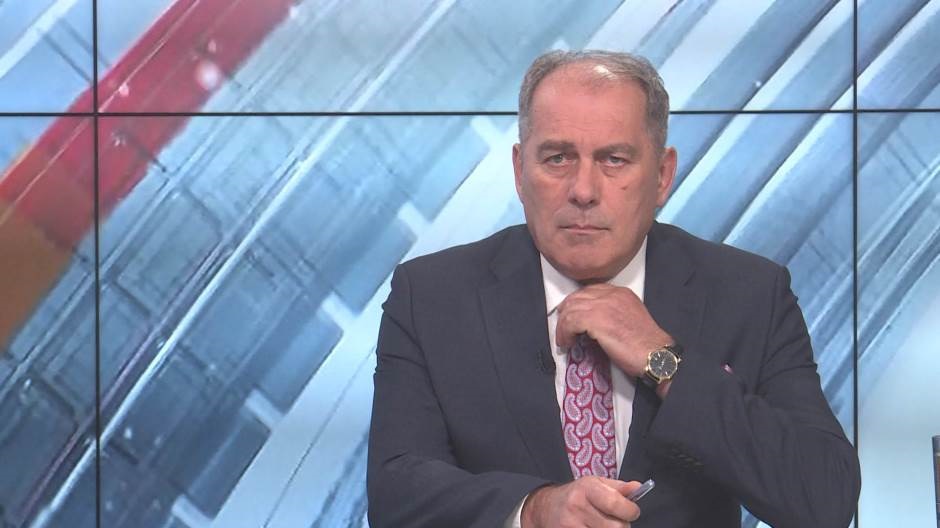
Bosnia Official Claims Students Afraid of Returning to Croatia
"They have agreed to enter the so-called AVR voluntary repatriation program. With their consent, we can return them to their country of origin without subjecting them to additional procedures, readmissions, etc.," Mektić noted.
The minister also explained that the possibility of readmission (i.e. return to the country where the immigrants were staying before entering Bosnia) was not considered.
"They expressed a great fear of returning to Croatia and worried that they would be further harassed there. They were simply afraid for their own lives," Mektić claimed. He added that the two Nigerian students chose not to seek asylum in Bosnia.
Croatian Police and Hostel Manager Deny Students’ Account
Recall that the Nigerian students, who came to Croatia without rackets to play table tennis for a sports competition in Pula, claimed that the Croatian police abducted them in Zagreb on November 17 or 18. According to their uncorroborated account, the Croatian police transferred them to the green border of Bosnia and then expelled them there under threat of violence.
However, the police claim that the Nigerian students “officially checked out of the HI Youth Hostel on November 18, paid their expenses, took their travel documents and possessions, and left for an unknown destination."
The police also noted that another student (in the group of five) tried to enter Slovenia twice and applied for asylum in Croatia on November 27.
The hostel manager confirmed the police account and disputed the students’ claimed check-in and check-out dates. He also disputed the students’ claims that an unidentified “friend” retrieved the students’ passports from the hostel after their alleged disappearance.
Abike Dabiri-Erewa, Chairperson of Nigerians In Diaspora Commission (NIDCOM), also responded to the students’ claims on Saturday, after their story, which originally appeared in Žurnal, was picked up by The Guardian and then The Cable in Nigeria.
“It’s not as straightforward as you have reported, but the Minister (of Foreign Affairs) has personally intervened,” she wrote.
Follow our Politics page for updates on the migrant crisis in Croatia.
Nigerian Students in Bosnia: We won't go to Croatia without UN Escorts!
According to yesterday’s interview for a Bosnian portal, the Nigerian students say they want to go home to Nigeria immediately. If the Bosnian authorities intend to transfer them back to Croatia, they will only agree to go if they are accompanied by United Nations escorts.
Azra Omerović, of the Bosnian portal Žurnal, caught up with the students in East Sarajevo on December 10, 2019.
Original Žurnal Story Went Viral
On December 3, Žurnal published the story of two Nigerian students, Abia Uchenna Alexandro and Eboh Kenneth Chinedu, who allege that Croatian police illegally transferred them to Bosnia and Herzegovina. That story was picked up by several international publications including The Guardian and The Cable, a Nigerian portal. In the meantime, the students were transferred from Velika Kladuša to the Immigration Center in East Sarajevo, after being detained for questioning in Bihać.
The Croatian Ministry of Interior has dismissed allegations by the Nigerian students that they had been illegally transferred to Bosnia by the Croatian police.
Youth Hostel Manager Denies Students’ Account
Branimir Markač, the manager of HI Youth Hostel, the Zagreb hostel where the students stayed, has also disputed the students’ arrival and departure dates. He also denies that the students disappeared on the evening of November 17. He dismisses the students’ claims that an unidentified “friend” later came to pick up their passports, which they claim remained at his hostel after the students were allegedly “kidnapped” by Croatian police. The fact that the students could not remember the name of their hostel further muddies the narrative. There is unconfirmed speculation that the unidentified “friend” might be the other student in their group, who tried to enter Slovenia twice, applied for asylum in Croatia and is currently being housed in Zagreb.
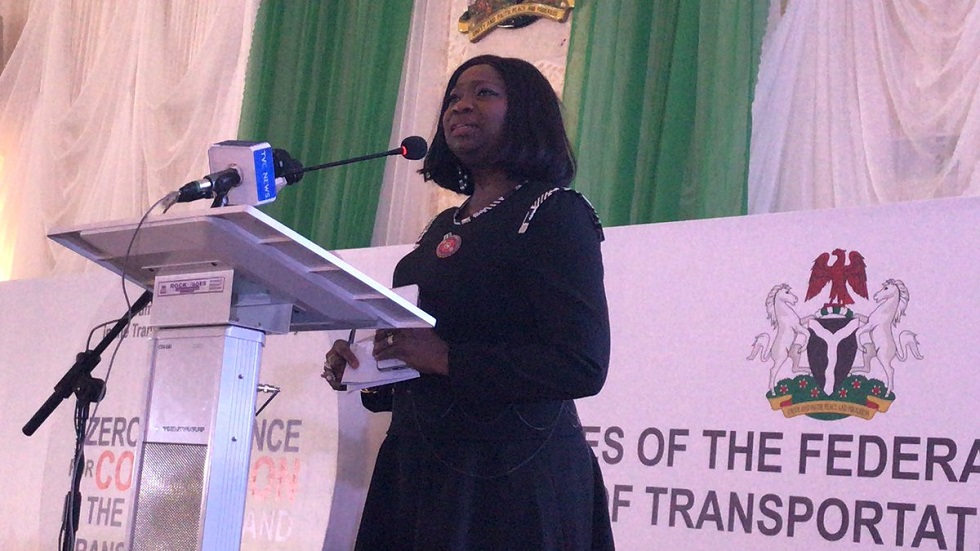
Nigerian Minister of Foreign Affairs Intervened
Abike Dabiri-Erewa, Chairperson of Nigerians In Diaspora Commission (NIDCOM), responded to the students’ claims on Saturday, after their account was picked up by The Cable in Nigeria.
“The Minister of Foreign Affairs is on this matter. It’s not as straightforward as you have reported, but the Minister has personally intervened. We should give an update as the intervention continues,” she wrote.
In their most recent interview with Žurnal, students say they cannot believe what is happening to them and have responded to allegations by the Croatian media and police.
We are Telling the Truth!
“We are scared, we were telling the truth about what the Croatian police did to us. They have accused us of lying because we want asylum in Croatia. We were legal in Croatia, and if we had wanted to seek asylum, we could have applied for it because we had visas,” Kenneth Chinedu insists.
The two Nigerian students are currently being housed in East Sarajevo, at the Center for Foreign Affairs of Bosnia. They say that they have been in custody the entire time.
Currently in Custody in East Sarajevo
“The police questioned us. We told them what happened, and we've been in custody here ever since. We are not allowed to go outside and we're not doing well at all. We need help, have someone help us. Send us home immediately or allow us to be escorted back to Croatia with UN representatives. We will not go to Croatia without UN representatives, maintains Alexandro.
Students Demand UN Escorts for Croatia
“If they want to send us to Croatia, we must be accompanied by the UN. They (the Croatian police) denied everything we said they did to us. We need someone to accompany us every moment and to keep track of what's happening. We are terrified of returning to Croatia after everything that they have done to us. We told the truth and stand by our story!” Alexandro reiterates.
Nigerian Official: There is ‘Back Story’
The Nigerian students are asking the Bosnian authorities to resolve their situation as quickly as possible because they did not enter Bosnia and Herzegovina illegally. However, the details of their transfer to Bosnia remain in dispute, and top Nigerian government official Abike Dabiri-Erewa confirmed that there is a “back story”.
“But whatever the circumstances, the most important thing is to get them back,” she emphasized in Saturday’s tweet.
Follow our Politics page to keep updated on this story and the migrant crisis in Croatia.
Lack of Language Proficiency Hinders Refugees' Integration in Croatia
ZAGREB, December 11, 2019 - Croatia, which is only building a system for integration of refugees, is achieving good results in their accommodation and employment, but the problem is learning the Croatian language, it was said at a round table discussion in Zagreb on Tuesday.
During the round table, organised by the Jesuit Refugee Service (JRS) on the occasion of the International Human Rights Day, JRS head Tvrtko Barun said that when it came to accommodation, Croatia could serve as a positive example in the European Union, but noted that in recent years the language had become a serious obstacle.
Since 2006, when Croatia introduced the asylum system, slightly over 900 foreigners have been given international protection, and in the meantime some 300 of them have left Croatia.
Giuseppe DiCara of the Office of the United Nations High Commissioner for Refugees, praised the integration of refugees in the Croatian labour market and their accommodation, and pointed to problems in studying the Croatian language.
The problem lies with the Croatian language, we are trying, in cooperation with the Interior Ministry and the Education Minister, to solve this problem, he added.
Donya Spanta, an asylee from Iran, said she had noticed a lack of support for the full integration of asylum seekers into Croatian society because of their lack of knowledge of the Croatian language. She said she personally had no problems because she speaks English, but that other people at the centre for refugees were very isolated in their small communities.
More news about the refugee crisis can be found in the Politics section.
Police Still Bringing Migrants to Camp Near Croatian Border
ZAGREB, December 9, 2019 - Police in the Una-Sana canton of northwestern Bosnia and Herzegovina on Monday continued bringing migrants to the makeshift Vučjak camp outside Bihać despite last week's announcements that the camp would be dismantled as totally unsuitable for accommodation of migrants, local media said.
A group of migrants was transferred to Vučjak from a dilapidated former metal factory in Bihać on Monday morning.
An estimated 600 illegal migrants are currently staying in the Vučjak camp, situated on a former landfill near a minefield close to the Croatian border.
Last week Security Minister Dragan Mektić and the head of cantonal government, Mustafa Ružnić, agreed to close down the camp and transfer its occupants to other camps, such as Bira and Miral which meet the basic conditions for accommodation of migrants during wintertime, or to a new reception centre in Blažuj, near Sarajevo, which is not yet fit to take them in.
The head of the Bosnia and Herzegovina Office of the International Organisation for Migration (IOM), Peter Van der Auweraert, told N1 television that there was still no official confirmation of how and when the Mektić-Ružnić agreement would be carried out.
Under the agreement, the refugees would not be relocated by IOM but by police.
Residents of Blažuj are opposed to the plan and have announced to take all the necessary measures to prevent the relocation, including by blocking access to the former army barracks which would serve as a temporary shelter for about 350 migrants.
More news about the migrant crisis can be found in the Politics section.
Croatia Police Incident Not as The Guardian Reported - Nigerian Ministry
Abike Dabiri-Erewa, Chairman/CEO of the Nigerian Diaspora Commission for the government of Nigeria, responded to the allegations of two Nigerian students who came to Croatia to play table tennis and mysteriously ended up in Bosnia, after The Guardian article appeared on a local Nigerian portal.
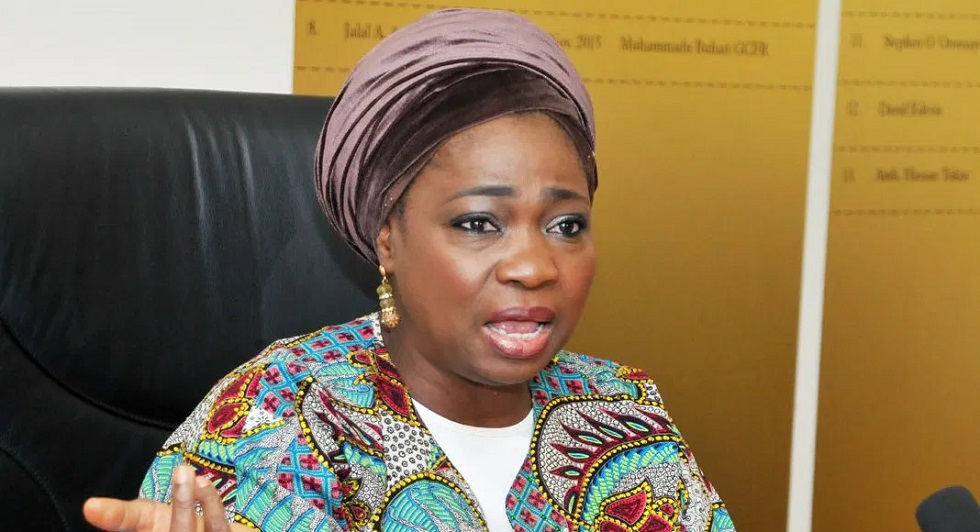
Nigerian Minister of Foreign Affairs Intervened
“The Minister of Foreign Affairs is on this matter. It’s not as straightforward as you have reported, but the Mimster (sic) has personally intervened. We should give an update as the intervention continues,” she revealed in a tweet on Saturday, December 7.
The Guardian article titled “Police in Croatia deport Nigerian table tennis players to Bosnia” appeared on December 5. Since then the story has been picked up by DW, The Telegraph and others. And, then it appeared in TheCable, a Nigerian portal.
Croatian Police 'Kidnapped' Nigerians According to Žurnal
Žurnal, a portal based in Bosnia, broke this story on December 3 with the headline: “Croatian Police Kidnapped Nigerian Students and Took Them into Bosnia”. The Žurnal article also included a video interview with the students, Kenneth Chinedu Eboh and Uchenna Alexandro Abia, who alleged that Croatian Police apprehended them on a tram in downtown Zagreb. According to the students’ account they were brought to the police station on the evening of November 17, put into a van with other illegal migrants and forced at gunpoint by the Croatian police to cross the Bosnian border.
Žurnal Story Gets Picked Up by The Guardian
Writing from Tuzla, Bosnia - Lorenzo Tondo, a correspondent for The Guardian based in Palermo, Italy - referenced the students’ Žurnal interview in his December 5 article for the publication. He also interviewed Alberto Tanghetti, organizer for the Fifth World InterUniversities Championships in Pula, where the students had showed up without rackets and sports equipment, and competed in table tennis. Mr. Tanghetti confirmed that the young men had attended the competition and that he had identified them for volunteers at the camp in Velika Kladuša, where the men ended up.
However, Mr. Tondo’s December 5 article didn’t include the statement from the Croatian police which had appeared in Croatian media mid-day on December 4. Among other things, their statement disputed the students’ reported Zagreb travel dates and noted that another student in the group of five, had tried twice to cross the border to Slovenia and eventually applied for asylum in Croatia.
First Guardian Article Missing Police Statement
I contacted Mr. Tondo on the evening of December 5 to ask why he hadn’t included the police statement, which had appeared the day before and contradicted key details in the students’ allegations. I also pointed out that several Croatian media outlets had just interviewed the manager of HI Youth Hostel (also on December 5), where the students stayed. I added that the HI Youth Hostel is only 230m from the central police station on the same street, which calls into question why the police wouldn't have accompanied the students back to their hostel to verify their passports. According to the students’ allegations; the Croatian police brought them to the nearby police station instead.
Branimir Markač, the hostel manager, also disputed the students’ claimed check-in and check-out dates. The students stated that they checked in to the hostel on November 17, went for a walk in the city and were apprehended by police, who refused to allow the students to prove their identities and legal visas in Croatia, and took them in a van to Bosnia instead. The manager confirmed the Croatian police account that the students had checked in on November 16, rather than November 17, and checked out with their passports and belongings on November 18.
Mr. Markač also disputed the students’ account that an unidentified “friend” came to his hostel (the name of which the students couldn’t remember), retrieved their passports, and sent them to Bosnia, where local sources confirmed their arrival on November 25. The manager confirmed that no one came to his hostel in search of the Nigerians’ passports. He also emphasized that he would not have handed them over to a stranger.
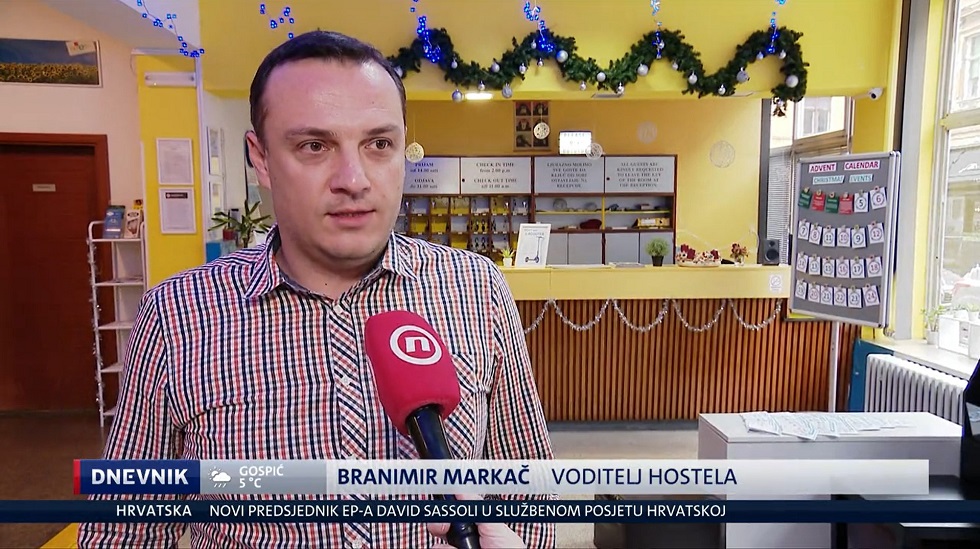
Second Guardian Article Missing Hostel Managers’ Account
Mr. Tondo maintains that he didn’t obtain a police statement until 6 hours after his first article was published. In fact, he would have had that information the day before if he had been following Croatian media. He also didn’t include the hostel managers' account in his second article, written in Split, and titled “Croatia and Bosnia play political ping-pong over table tennis players”. That article, which appeared in The Guardian on December 6, quotes the Croatian police statement and refers the other Nigerian who attempted to cross the Slovenian border. However, it makes no reference to the hostel manager, even though I had provided him with this information and sources on the evening of December 5.
My correspondence with Mr. Tondo continued December 6, when I asked him the following:
- Did you read articles from any of the Croatian media outlets beforehand?
- Do you follow Croatian media?
- Do you read/speak Croatian/Serbian/Bosnian?
- Do you have an understanding of politics in Croatia?
- Did you contact anyone in Zagreb (besides the Croatian police) where this alleged incident happened?
Mr. Tondo declined to reply and responded that he was going to send my email to his lawyer. To my request for his editor’s name and contact information, he responded that he had already forwarded my emails to his editor and I could seek out that information by myself.
Does Lorenzo Tondo Know Croatian?
Upon contacting The Guardian by phone on December 6, I obtained the contact information for Tracy McVeigh, Editor of The Guardian’s Global Development Desk. I included my correspondence with Mr. Tondo and asked if The Guardian has a dedicated correspondent in Croatia who can follow news in Croatian/Serbian/Bosnian. I also indicated that Mr. Tondo would have a difficult time following the news developments in Croatia if he can’t read or speak the language. And, surely, there is a considerable pool of capable journalists living in Zagreb.
The Guardian Cannot Afford Croatia-based Correspondent
Ms. McVeigh declined to confirm whether Mr. Tondo knows Croatian/Serbian/Bosnian, and indicated that The Guardian, an international publication with over 8 million Facebook followers, cannot afford to keep a permanent correspondent in Croatia. Instead, she assured me that The Guardian has highly-skilled and experienced correspondents who travel to many different countries to write for their “British audience”.
According to the Croatian portal MojaPlaća (My Salary), the average monthly full-time salary for a journalist in Croatia, after taxes, is 4792 HRK (541 GBP, 644 EUR). So, it appears that The Guardian chose instead to assign this story to Mr. Tondo, a correspondent based in Palermo, Italy - who has not indicated whether he knows the local language. And he also appears to have accepted the Nigerian students’ story, reported by Žurnal, as fact.
No Witnesses to Students’ Alleged Zagreb ‘Kidnapping’
Other than contacting the Croatian police for a statement, which was already available to the public on December 4, there’s no evidence that Mr. Tondo made any other attempts to confirm the details of the students’ story. He apparently did not contact the manager of HI Youth Hostel, nor is there any evidence that he was following Croatian media as this story developed. There’s also no evidence that he made any attempts to reach out to the other Nigerian student in the group, who applied for asylum status in Croatia, and is currently being housed at the center for asylum seekers in Zagreb.
“I always knew there’d be a back story to this!” read one response to Abike Dabiri-Erewa’s tweet on Saturday.
“There is. But whatever the circumstances, the most important thing is to get them back,” the senior Nigerian government official replied.
Follow our Politics page for updates on this developing story and the migrant crisis in Croatia.

